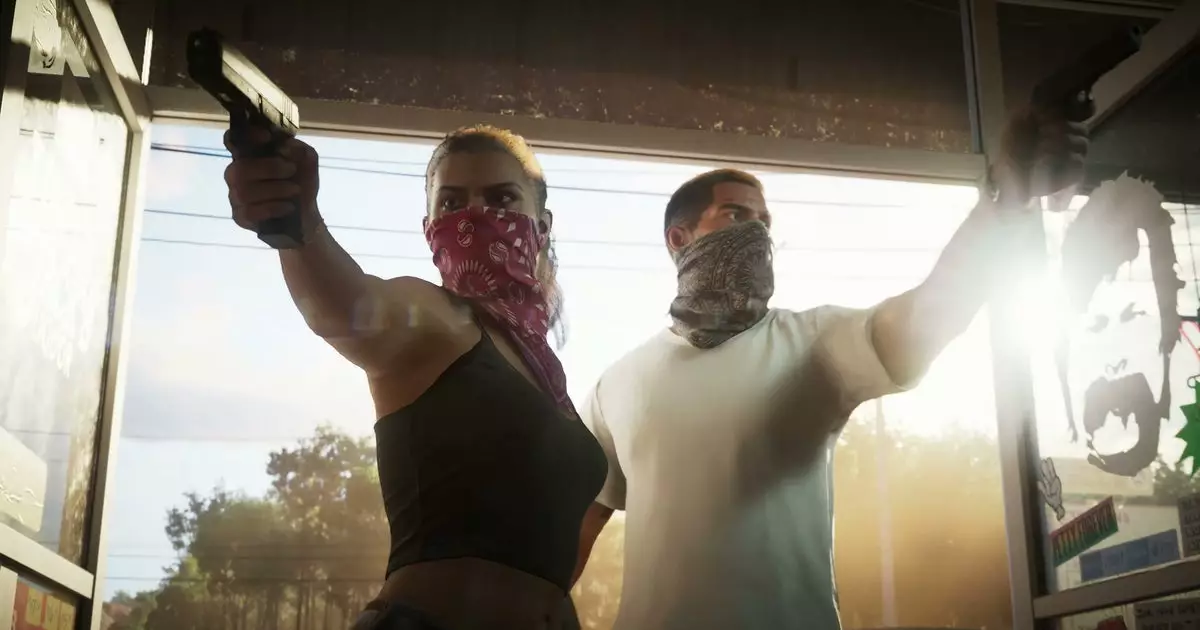The gaming world buzzed with excitement at the thought of the next entry in the Grand Theft Auto series, a franchise that has consistently raised the bar for open-world games. However, fans were met with disheartening news as Rockstar announced a delay for Grand Theft Auto VI, shifting its release from the expected autumn timeframe to May 26, 2026. This announcement, although a common occurrence in the gaming industry, carries a weight of disappointment, especially considering the previous assurances made by Strauss Zelnick, the CEO of Take-Two Interactive, about the game’s timely launch.
In a landscape where gamers’ patience is constantly being tested by delays, the timing of this announcement feels particularly blunted. Zelnick’s earlier confidence, through various shareholder calls, projected a different narrative. He had articulated a strong belief that GTA VI would meet its deadline, subtly aiming to instill trust and invest shareholder confidence. This contradiction raises questions about corporate communication and the integrity of such public statements, leading to a loss of credibility and trust among avid fans.
Reasons Behind the Delay
Rockstar’s statement indicated that the decision to postpone the game was ultimately rooted in a commitment to quality. This sentiment is laudable; after all, the game’s pedigree warrants a level of excellence that fans have come to expect. Delays in game development can often result in a polished final product, rich in detail and innovative gameplay mechanics. However, the schism between investor assurances and the eventual reality may leave a bitter aftertaste for many stakeholders.
In recent history, video games have experienced a shift in how developmental timelines are approached. Developers are now seen as prioritizing a robust product over meeting aggressive deadlines, a lesson learned from high-profile disasters resulting from hasty releases. Rockstar’s decision to delay the game might be seen as a sophisticated move that positions them to avoid the rocky pitfalls of an unfinished title. But the discrepancy in communication about the release cycle calls for greater transparency and a re-evaluation of how companies manage public expectations.
Impact on the Gaming Landscape
The delay does, however, provide a silver lining for other game developers. With market leaders like Rockstar setting their sights on a delayed release, competitors can safely plan for their titles’ launches without fear of overshadowing by the titan of open-world gaming. This shift could lead to a healthier and more evenly spread gaming schedule for the fall and winter months, allowing new and innovative titles to thrive instead of being buried under the anticipated weight of the GTA franchise.
Moreover, the palpable excitement surrounding Grand Theft Auto VI—despite the delay—remains a testimony to the franchise’s monumental influence on gaming culture and its audience. In a modern age where gaming has transcended entertainment to become a cultural touchstone, the anticipation leading up to the game’s eventual release will be significant. Rockstar has historically been adept at engendering excitement, and this added time could enable them to harness that energy into an even larger global event, drawing in legions of engaged fans.
The Path Forward
As we look forward to more news from Rockstar, anticipation is building for the upcoming Summer Games Fest, which may shed light on new developments regarding the game. Although we currently have just the initial trailer to consider, the industry is abuzz with speculation and discussions about potential gameplay mechanics, storylines, and, notably, the launch strategies for different platforms. One notable absence remains the lack of clarity regarding a PC release date, which signifies the need for a more inclusive launch strategy that embraces all gaming platforms.
Rockstar has a remarkable opportunity here, with the industry watching closely. Will they use this time to innovate truly, or simply create a polished version of a familiar experience? It’s a question that resonates deeply as we navigate through a period filled with varying expectations and industry dynamics. Ultimately, the decision to delay could revive a franchise already rich with history, potentially leading to an experience that elevates it beyond its predecessors. As fans, we must remain patient, albeit with our eyes set on the horizon, ready to embrace whatever groundbreaking experience awaits us in the ever-evolving world of gaming.

